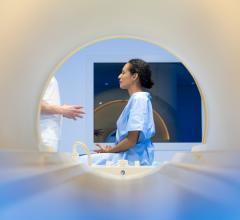
March 29, 2018 — The American College of Radiology (ACR) released new breast cancer screening guidelines recommending all women, especially black women and those of Ashkenazi Jewish descent, should undergo risk assessment by age 30. Assessing risk at this age would allow women at higher risk to be identified and begin earlier and more aggressive screening for breast cancer. In a separate recent analysis[i] from Harvard, black, Hispanic and Asian women have peak incidence of breast cancer in their 40s and should begin screening at least by age 40.
The ACR reaffirmed recommendations for annual breast magnetic resonance imaging (MRI) in the following groups, with slight refinements:
- 1) Women with known or disease-causing BRCA1 mutation (or their untested first-degree relatives) should begin annual MRI at age 25. If MRI is performed annually, there is emerging evidence that the benefit of mammography is relatively small in such women prior to the age of 40;
- 2) Women with other known disease-causing mutations (or their untested first-degree relatives), and those with a calculated lifetime risk of 20 percent or more, should begin annual MRI between age 25 and 30. Annual mammography is of benefit in those with BRCA2 mutations;
- 3) Women with prior chest/mantle radiation therapy (cumulative dose of ≥ 10 Gy) before age 30 should begin MRI and annual mammography at age 25 or at least 8 years after completion of radiation, whichever is latest; and
- 4) Women with a calculated lifetime risk of breast cancer of ≥ 20 percent. The Tyrer-Cuzick model was discussed as the most comprehensive and consistently accurate model for predicting risk and now includes fibroglandular breast density as a risk factor, though all models may over- or underestimate risk for a given individual.
The ACR newly endorses annual screening MRI in addition to annual mammography or tomosynthesis for women in the following situations (provided the patient has not had bilateral mastectomy):
- Women with a personal history of breast cancer and dense breasts; and
- All women diagnosed by age 50. A personal history of breast cancer is not included in risk models, but all women diagnosed with breast cancer at or before age 50 and treated with breast-conserving therapy have a ≥ 20 percent risk for a new breast cancer.
The ACR suggests annual MRI be considered in addition to annual mammography or tomosynthesis in women with a history of lobular carcinoma in situ (LCIS) or prior atypia (ADH, ALH, atypical papilloma), especially if other risk factors are present, though further study of the benefit of MRI is needed.
In women who meet guidelines for MRI screening but are unable to tolerate it and who have dense breasts, the ACR suggests ultrasound be considered in addition to annual mammography. Tomosynthesis is expected to reduce the benefit of supplemental screening ultrasound, depicting about half of the cancers that would have been seen only on ultrasound after 2-D mammography, though further study is warranted. If MRI is performed, there is no benefit to screening ultrasound.
For more information: www.acr.org
References


 July 29, 2024
July 29, 2024 








